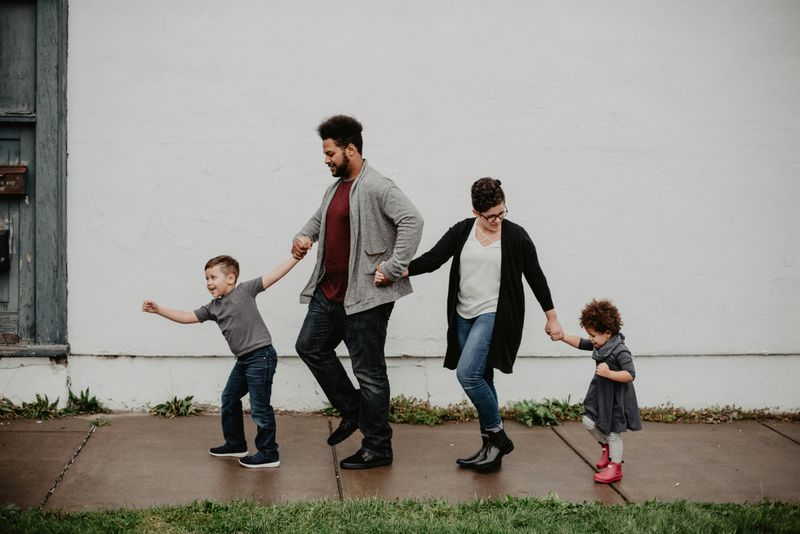Marriage is supposed to bring joy, but sometimes it becomes a source of quiet pain. Many people find themselves trapped in relationships that no longer make them happy, yet they stay year after year. Understanding why so many choose to remain in unhappy marriages can help us see that these struggles are deeply human and more common than we think.
1. They’re Scared of Starting Over
Starting fresh sounds exciting in movies, but in real life, it’s terrifying. Leaving a marriage means rebuilding everything from the ground up—finding a new place to live, splitting possessions, maybe even learning to date again.
The fear of the unknown can feel paralyzing. Even when home feels cold and empty, at least it’s familiar. The devil you know often seems safer than the uncertainty waiting outside the door.
Many people convince themselves that staying miserable is better than risking something worse. That fear keeps countless marriages alive long after the love has died.
2. They Don’t Want to Hurt the Kids
Parents often sacrifice their own happiness, believing their children need an intact family. They convince themselves that staying together—even when tension fills every room—is better than splitting up.
The silence between unhappy parents can be deafening, but many think kids don’t notice. They imagine that keeping the family structure intact protects their children from pain, even when the emotional distance is obvious.
What they don’t always realize is that children absorb everything. Growing up watching loveless parents can teach kids that unhappiness is just what marriage looks like, creating a cycle that continues into the next generation.
3. They Still Hope Things Will Change
Hope can be both beautiful and cruel. After years of distance and disappointment, one small gesture—a surprise coffee, a remembered anniversary—can spark belief that maybe, just maybe, things will get better.
Old memories become lifelines. People replay the early days when laughter came easily and love felt effortless, convincing themselves that version of their partner still exists somewhere underneath.
This hope keeps them waiting for a change that may never come. They think if they’re patient enough, kind enough, or try hard enough, the marriage will somehow return to what it once was.
4. They Feel Financially Trapped
Money isn’t romantic, but it’s powerful. When one partner depends entirely on the other for financial stability, leaving becomes more than an emotional decision—it becomes a question of survival.
Shared bank accounts, mortgages, car payments, and health insurance all become chains. The thought of affording rent alone, covering childcare, or losing the lifestyle they’ve built feels impossible.
Financial dependence creates an invisible cage that’s just as real as any physical barrier. For many, staying in an unhappy marriage feels like the only way to keep a roof overhead and food on the table.
5. They Fear Judgment from Family or Society
Cultural pressure to stay married can feel crushing. Family members whisper about commitment and trying harder, while friends offer well-meaning advice about sticking it out.
In many communities, divorce still carries a heavy stigma. People fear being labeled as failures, quitters, or bad examples. They imagine gossip at church, awkward questions at school pickup, or disappointed looks from parents who stayed married no matter what.
The weight of other people’s expectations can be heavier than personal unhappiness. Rather than face judgment, many choose to suffer in silence, acting all happy while crumbling on the inside.
6. They’ve Invested Too Much Time
Twenty years together. Two decades of shared birthdays, holidays, inside jokes, and memories. Walking away from all that history feels like throwing away a huge part of life.
The sunk cost fallacy doesn’t just apply to business—it traps marriages too. People think about all the time they’ve already invested and convince themselves that leaving would make those years worthless.
“I’ve come this far” becomes a mantra. They tell themselves that maybe they can hold on just a little longer, that eventually all that time invested will pay off, even when deep down they know it won’t.
7. They Confuse Comfort with Love
Routine can feel like love when you’ve forgotten what real connection feels like. Knowing how someone takes their coffee, sharing a bathroom, falling into predictable patterns—these things create comfort that’s easy to mistake for affection.
Familiarity becomes a substitute for passion. The calm predictability of knowing what to expect each day can seem like intimacy, even when meaningful conversation disappeared years ago.
But comfort isn’t the same as love. Many people realize too late that they’ve been living with a roommate, not a partner, and that the warmth they feel is just habit dressed up as happiness.
8. They’re Afraid of Being Alone
Loneliness terrifies people more than almost anything else. The thought of empty nights, silent mornings, and coming home to no one can feel unbearable.
Even when a marriage offers no real companionship, having another body in the house provides an illusion of connection. The idea of eating dinner alone, sleeping in an empty bed, or navigating life solo keeps people frozen in unhappy relationships.
The fear of loneliness becomes stronger than the desire for genuine happiness or authentic love.
9. They Feel Guilty for Wanting More
Many people grew up learning that marriage means sacrifice and endurance, not joy and fulfillment. Admitting they want more—passion, laughter, real intimacy—feels selfish and wrong.
They tell themselves they’re being ungrateful. Their partner isn’t abusive, doesn’t cheat, and pays the bills. Shouldn’t that be enough? The guilt of wanting emotional connection or romantic love feels like asking for too much.
This guilt keeps them silent and stuck. They swallow their needs and convince themselves that expecting happiness from marriage is childish or unrealistic, even though everyone deserves genuine love and connection.
10. They’re Emotionally Drained and Numb
Chronic unhappiness is exhausting. After years of disappointment, many people simply run out of emotional energy. Feeling nothing becomes easier than feeling pain.
Numbness acts like emotional anesthesia. When you stop caring, stop hoping, stop hurting, you also stop having the strength to change anything. Making the massive decision to leave requires energy they no longer have.
So they float through days on autopilot, going through motions without really living. Change demands courage and strength, but when you’re emotionally depleted, staying put becomes the path of least resistance, even if it means remaining miserable indefinitely.
11. They Still Love Their Partner — Just Not the Relationship
Sometimes people still care deeply about their spouse even when the relationship itself has become broken beyond repair.
They remember who their partner used to be, or see glimpses of the person they fell for years ago. That love keeps them holding on, hoping that loving the person is enough, even when the partnership no longer works.
This makes leaving incredibly complicated. How do you walk away from someone you still love? They cling to affection that exists outside the reality of their daily life, unable to accept that love alone can’t fix everything.
12. They Fear Regret
What if leaving is a mistake? What if the grass isn’t greener? What if they walk away and realize too late that what they had wasn’t actually so bad?
These “what if” questions become mental chains. The fear of future regret can be paralyzing, making people stay in situations that clearly aren’t working. They’d rather endure known unhappiness than risk making a choice they might regret forever.
This fear keeps them stuck in endless analysis, weighing options until years pass. They wait for absolute certainty that never comes, missing opportunities for real happiness while trying to avoid potential regret.
13. They Believe This Is Just What Marriage Is
Growing up watching unhappy parents shapes what people expect from marriage. If your own childhood home was filled with silence, distance, and resigned coexistence, that becomes your template for normal.
Many people genuinely believe that love always fades, that passion dies, and that marriage eventually becomes just tolerating each other. They think the ache, the loneliness, the disconnect—that’s just how it goes for everyone.
This belief system keeps them trapped because they never question whether something better exists. They accept unhappiness as inevitable, convincing themselves that everyone else is just as miserable behind closed doors, making suffering feel universal.













